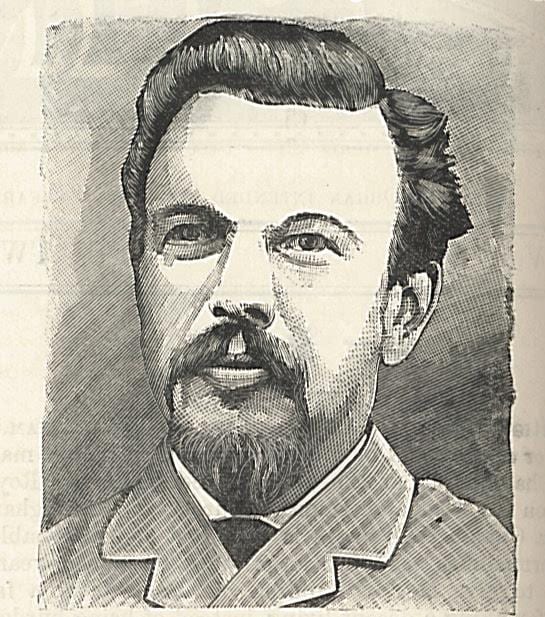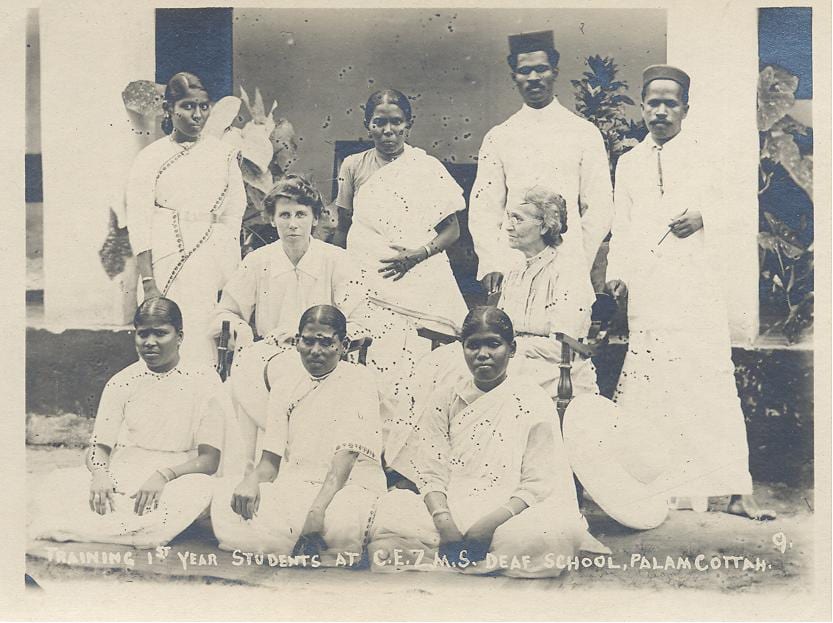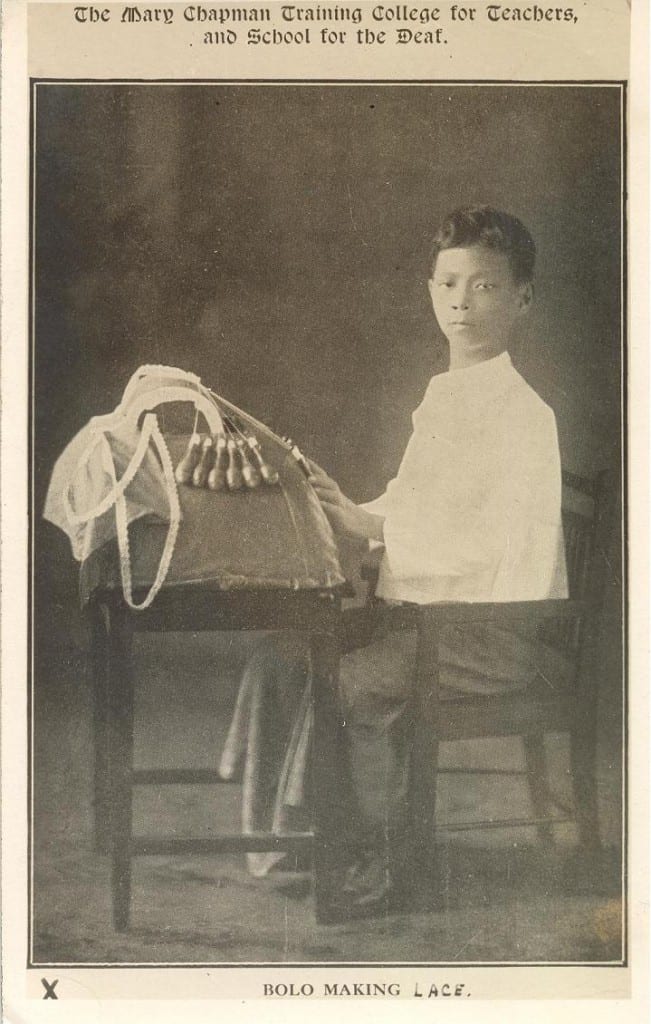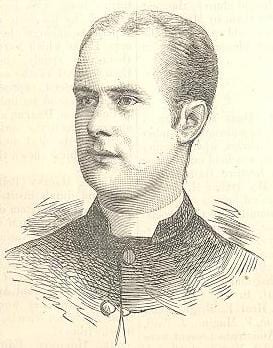“Truly, he was a good man” – The Rev. Charles Orpen, Founder of the Claremont Institution
By H Dominic W Stiles, on 30 October 2015
 Born in Cork in 1791, Charles Edward Herbert Orpen founded the first Institution for the Deaf in Ireland. According to his biographer, Emma Lucretia le Fanu, mother of Sheridan Le Fanu, he was supposed to become a doctor, proceeded to do an apprenticeship and then discovered his teacher was not a licentiate of the Dublin College of Surgeons, so he had to embark on a new apprenticeship. When Charles finally qualified, he toured in England, visiting ‘hospitals, prisons, manufactories &c.’ (Orpen 1836, p.ix). According to his book ‘Anecdotes’, one of the people he visited was Dr. De Lys in Birmingham, who gave him a report on the newly established Birmingham institution.
Born in Cork in 1791, Charles Edward Herbert Orpen founded the first Institution for the Deaf in Ireland. According to his biographer, Emma Lucretia le Fanu, mother of Sheridan Le Fanu, he was supposed to become a doctor, proceeded to do an apprenticeship and then discovered his teacher was not a licentiate of the Dublin College of Surgeons, so he had to embark on a new apprenticeship. When Charles finally qualified, he toured in England, visiting ‘hospitals, prisons, manufactories &c.’ (Orpen 1836, p.ix). According to his book ‘Anecdotes’, one of the people he visited was Dr. De Lys in Birmingham, who gave him a report on the newly established Birmingham institution.
While resident in Edinburgh and London, I had never even heard of the existence of such Asylums in these capitals; and in such ignorance then was I as to the wretched state of the Deaf-mute when uneducated, and the importance and interesting nature of their instruction, that I took so little interest about them, as not even to visit the school in Birmingham at that time. On looking into the Report, however, I found that it originated from a few lectures on the subject, and the exhibition of a little girl, whom Dr. De Lys and his friend Alexander Blair, Esq. had partially educated for that purpose. I knew that no such school had ever existed in Ireland; and it occurred to me, that perhaps I might at some future time be able to apply the same means to the same end, for the good of my own country. (ibid, p.ix-x)
 We have a copy of Orpen’s concisely titled book, The Contrast between Atheism, Paganism and Christianity, Illustrated; or, the Uneducated Deaf and Dumb, as Heathens, Compared with those who have been Instructed in Language and Revelation, and Taught by the Holy Spirit, as Christians (1828). It is dedicated by Orpen to Edmond Nugent, Lord Mayor of Dublin in 1827-8. It appeared in a second edition, as Anecdotes and Annals of the Deaf and Dumb (1836). In it, Orpen tells us how he took a neglected orphaned child called Thomas Collins from a Dublin institution where Orpen had served his apprenticeship under Surgeon Todd, the House of Industry. Fumbling his way along, being ignorant of teaching, he eventually got the child to acquire some vocabulary and ability to pronounce words and letters (Quarterly Review of Deaf Mute Education, p.365, Anecdotes p.x). Collins became an appentice printer and printed Orpen’s Anecdotes (p.xi). The idea of taking an ‘exibition pupil’ like this to demonstrate to the public what might be achieved in the education of a deaf child, was not unique of course.
We have a copy of Orpen’s concisely titled book, The Contrast between Atheism, Paganism and Christianity, Illustrated; or, the Uneducated Deaf and Dumb, as Heathens, Compared with those who have been Instructed in Language and Revelation, and Taught by the Holy Spirit, as Christians (1828). It is dedicated by Orpen to Edmond Nugent, Lord Mayor of Dublin in 1827-8. It appeared in a second edition, as Anecdotes and Annals of the Deaf and Dumb (1836). In it, Orpen tells us how he took a neglected orphaned child called Thomas Collins from a Dublin institution where Orpen had served his apprenticeship under Surgeon Todd, the House of Industry. Fumbling his way along, being ignorant of teaching, he eventually got the child to acquire some vocabulary and ability to pronounce words and letters (Quarterly Review of Deaf Mute Education, p.365, Anecdotes p.x). Collins became an appentice printer and printed Orpen’s Anecdotes (p.xi). The idea of taking an ‘exibition pupil’ like this to demonstrate to the public what might be achieved in the education of a deaf child, was not unique of course.
Inevitably for the period, Orpen was religiously motivated, and the passages he writes in the Anecdotes demonstrate this. He is at pains to say that Thomas Collins “knows himself as a sinner, and the Lord Jesus Christ as the only Saviour” (p.xi).
There never was but one missionary to the Deaf and Dumb; that missionary was a Jew ; that Jew was Jesus. Shall we be innocent, if we do not teach them to read his history? (p.384)
Orpen was also supportive of the use of sign lanuage, and in the Anecdotes, where each chapter is supported by extended quotes from various sources, for example p.474-6 qoutes Mr. Lewis Weld of the Pennsylvanian Institute, “it is is capable of expressing the nicest shades of thought, and of application to all the concerns of life.”
As well as supporting the education of Deaf people in sign language, he supported the use of Irish Gaelic, and the Anti-Slavery Society. In 1823 he married Alicia Sirr, and had a large family (Le Fanu, Chapter 11). In 1826 when Thomas Collins had a pocket watch, the gift of the Doctor’s brother, stolen, at the trial orpen interpreted for the court (p.106-7). This shows us that he must have been an able signer. In 1833 Orpen left Dublin, hoping to open a school in Birkenhead, but it fell through (Le Fanu p.124, p.128-9). “Schemes at variance with long-established systems and confirmed habits seldom meet with success till after a great length of time has elapsed” (ibid).
When two of his sons went to sea, and were so taken with the beauties of the Cape that they decided to stay there, Orpen determined to follow them, arriving in 1848 (ibid p.137). Orpen, who was ordained in South Africa, opposed slavery and the exclusion of black people from the Dutch churches (p.210-2). Le Fanu says of slavery, “Those who have had opportunities of seeing it best know how it brutalizes those who are bent on perpetuating it for their own sordid objects” (ibid p.217). Orpen died on the 20th of April, 1856 (ibid p.237). Le Fanu ends her biography, “Truly, he was a good man” (ibid p.243).
Charles Edward Herbert Orpen, Anecdotes and Annals of the Deaf and Dumb, 1836 [library historical books]
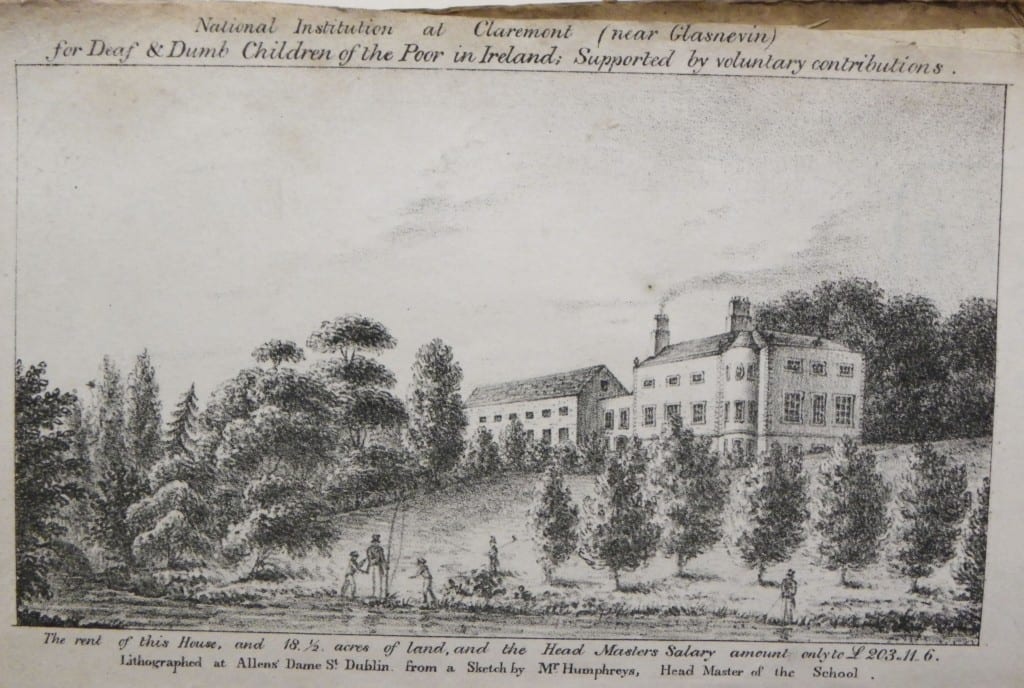 A Magazine Intended chiefly for the Deaf and Dumb, Vol.3, No. 30, p.86-7
A Magazine Intended chiefly for the Deaf and Dumb, Vol.3, No. 30, p.86-7
Quarterly Review of Deaf-Mute Education, 1888, 1, 364-374.
British Deaf-Mute and Deaf Chronicle, 1895, 4, 145-146. (illus)
Educating the deaf of Ireland. III. The work at Claremont. British Deaf Times, 1904, 1(10), 217-19. (photos)
POLLARD, R. The Avenue: the history of the Claremont Institution (1816-1978). The author, 2001. (illus)
UPDATE: 3/11/2015
Rachel Pollard produced another more extensive book on the Claremont Institution, under the same title in 2006 –
The Avenue: A History of the Claremont Institution, Denzille Press ISBN-10: 0955323908
 Close
Close


